Back to blog
6 MIN READ
6 Best Strategies to Boost Mobile App Adoption
PUBLISHED
11 December, 2023

Product Analytics Expert
App downloads are at the highest they’ve ever been. Business of Apps reports that in 2022, there were 142.6 billion downloads of apps and games—plenty to go around, right?
Well, not necessarily.
To really get ahead, you need to understand the key aspects of mobile app adoption and use them in your favor. At UXCam, we’ve helped thousands of mobile product teams take a data-driven approach to user adoption—and today, we’re going to share six of our favorite tactics.
Tag along to learn more!
What is mobile app adoption?
Mobile app adoption is the process of a user starting to use a specific mobile app. It starts with discovering the app (either in the app store or through marketing), learning how to use it through onboarding, and becoming a regular user through consistently rewarding experiences.
User needs, app design, marketing efforts, and positive reviews are some of the many factors that affect adoption. To reliably boost adoption, you need data points that give you insights into these aspects of your app (and more) so that decisions you make push you in the right direction.
UXCam is a powerful tool for generating this data.
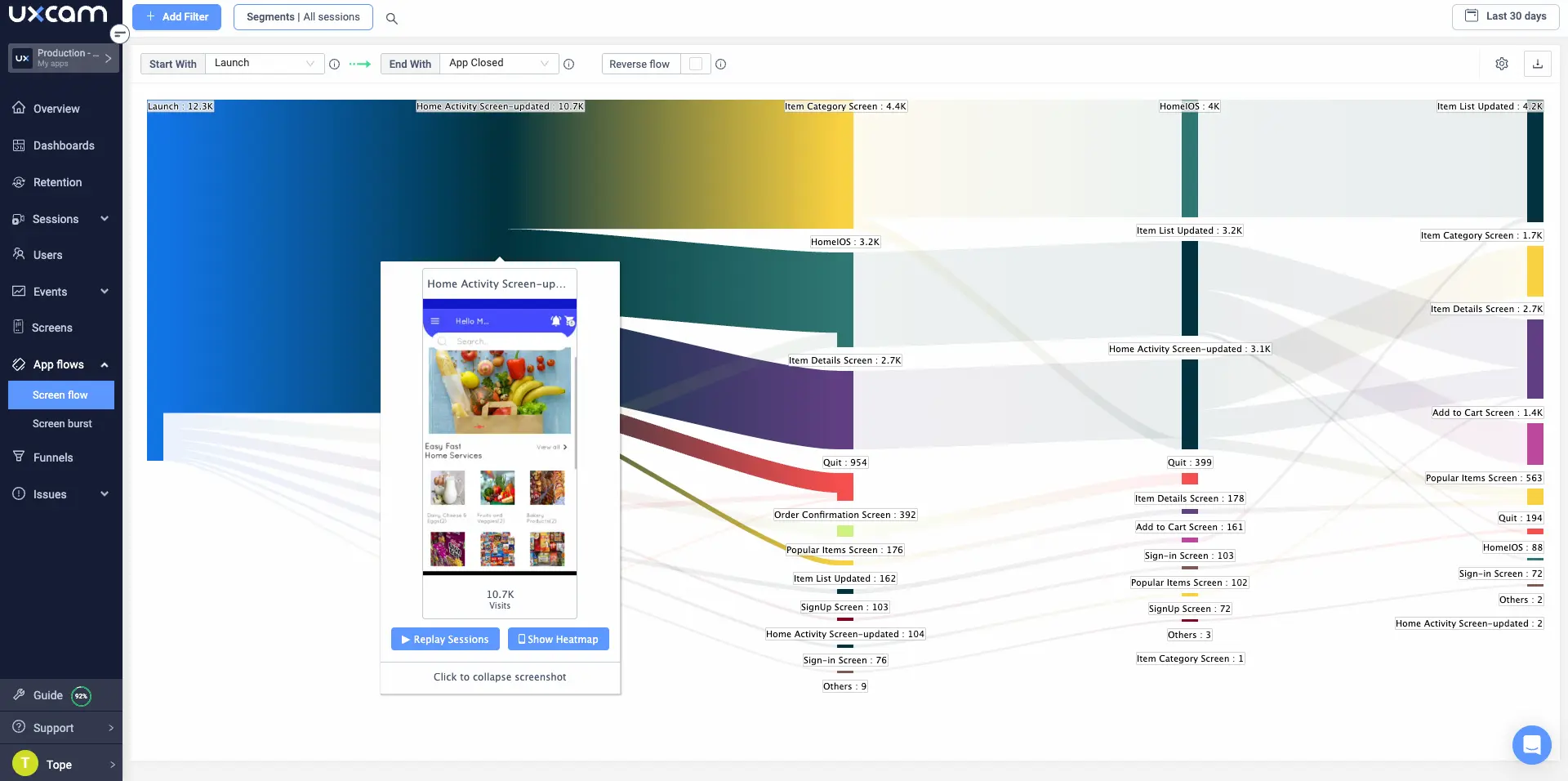
Our mobile app analytics platform combines qualitative and quantitative data points on user behavior to give product teams a comprehensive overview of how people interact with their product.
With UXCam, you can track user sessions and view screen recordings for qualitative insights into what makes users tick. We also offer real-time analytics that help you better understand the context in which events occur, like crashes and feature usage. This helps you identify patterns in the way an app is used and make improvements to boost adoption.
Why is mobile app adoption important?
Reach more customers
Mobile apps are a powerful way to connect with customers who use smartphones and tablets to access information and services anytime, anywhere. Boosting mobile app adoption helps you tap into the potential of a larger user base and maximize your business potential.
Increase engagement
Mobile apps offer customers a convenient and direct connection with a brand, which can significantly enhance user engagement. This is particularly important for customer retention.
According to recent data, 63% of smartphone users prefer companies whose apps provide relevant product recommendations. Plus, 51% of users use brand apps for rewards or points, while 58% show a preference for companies whose apps remember their past behavior.
Engaging customers through these features increases the likelihood of their returning to and using the app again.
Boost business growth
Applying strategies and best practices can enhance the adoption rate of business apps and achieve desired outcomes. Companies like Slack and HubSpot have successfully used strategies like social media ads and chatbots on their websites to increase brand awareness and attract leads.
How to boost your mobile app adoption
Understand user experience
Focus on onboarding
Tailor app experiences to user preferences
Leverage user feedback
Create habit loops to keep users hooked
Solve User Problems
Step 1 - Understand user experience
Understanding user experience means you have to analyze the characteristics, preferences, and pain points of your users.
UXCam can help you identify where users are having difficulties while using your app and provide insights on how to improve it. JobNimbus, a CRM and project management software for contractors, for example, successfully redesigned its mobile app using UXCam to improve the app experience for its non-tech-savvy users.
By implementing UXCam, JobNimbus was able to track various metrics, like user feature adoption and device model distribution, and make data-informed decisions to reduce costs, improve product features, and prioritize releases. As a result, its adoption jumped from 0.51% to 25% within 4 weeks.
Step 2 - Focus on onboarding
A good app onboarding experience can significantly affect the frequency of app usage and long-term adoption.
For example, Google Pay uses tooltips to educate new users about its features. Important features are highlighted with brief explanations, allowing users to quickly find what they need and get up and running faster.
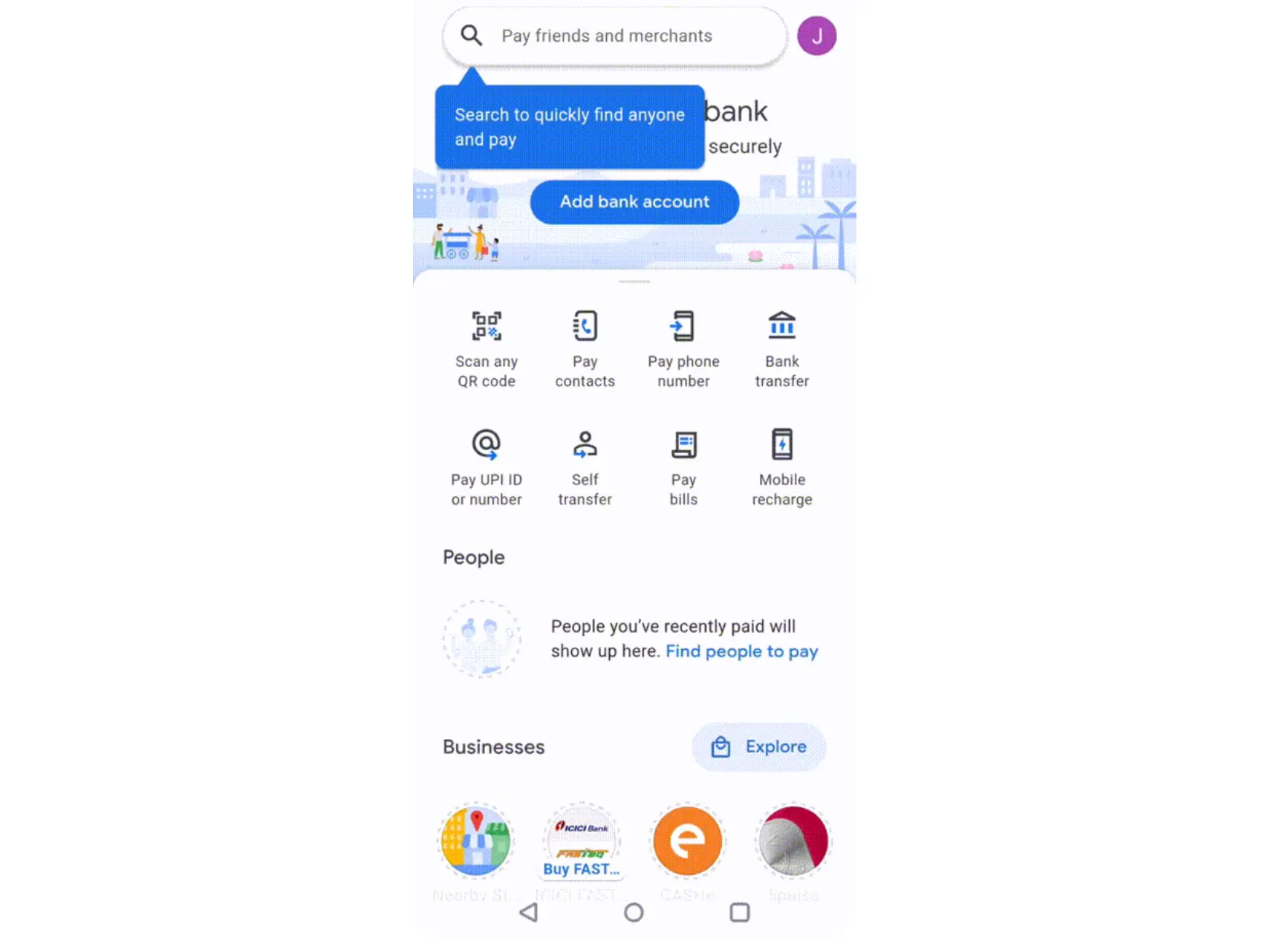
Tools like Appcues are great for creating a personalized onboarding flows—complete with tooltips, guide tours, and onboarding checklists. Tools like UXCam are great for measuring the effectiveness of these flows with concrete data points on adoption.
Step 3 - Tailor app experiences to user preferences
Personalizing the app experience based on user preferences can increase engagement and adoption.
Housing.com used UXCam to analyze user interactions and gain insights for improving their mobile app. By reviewing session replays, they identified discrepancies between intended functionality and user behavior.
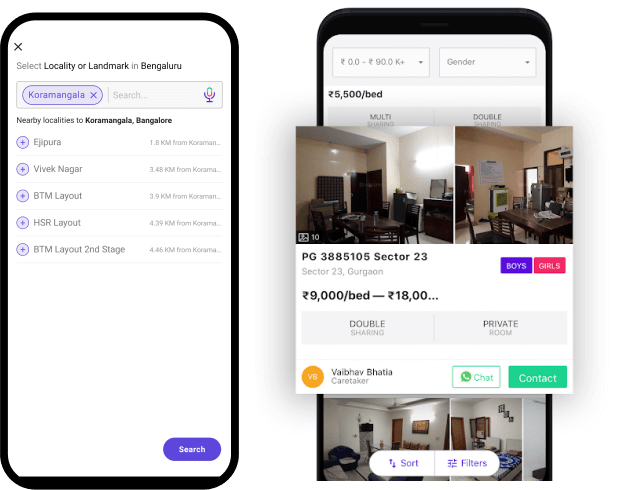

They discovered that users wanted to search for houses across multiple cities, leading to a redesign of the search bar. This resulted in a significant increase in adoption, from 20% to 40% of the user base.
Step 4 - Leverage user feedback
User feedback can provide valuable insights into how your app can be improved.
First-party data (i.e., data collected directly from users through customer surveys, interviews, and testing) can provide direct insights into how users perceive your app. However, you can also use in-app monitoring data to gain insights into user behavior.
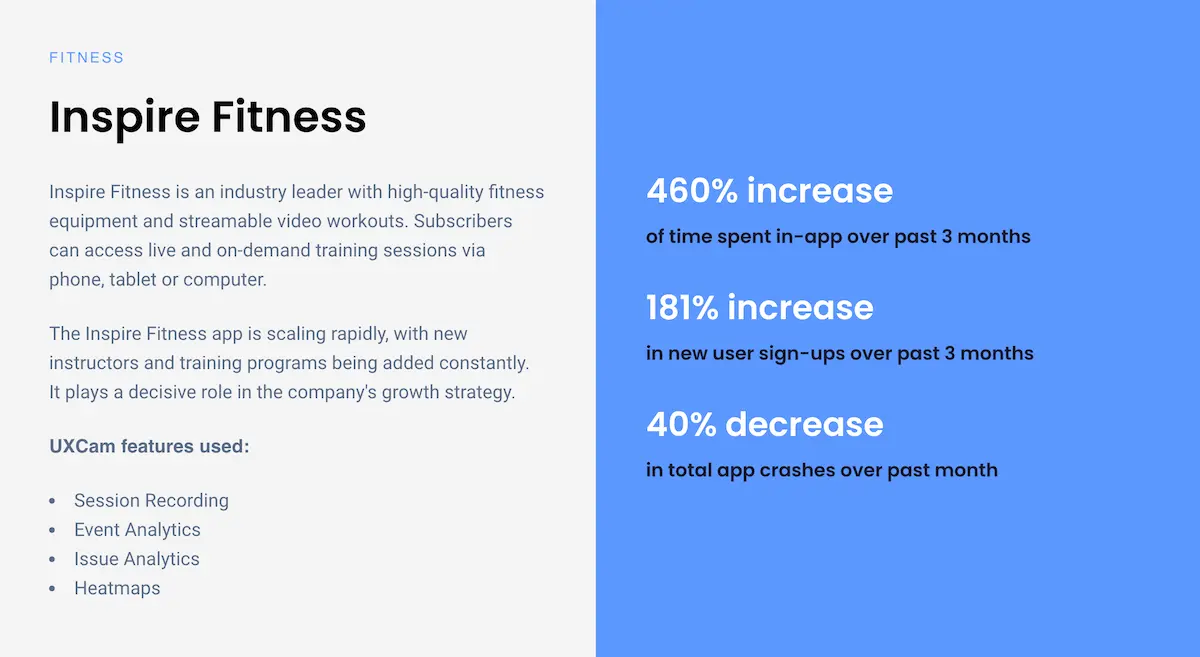
Inspire Fitness tracked key KPIs over the past quarter and saw spectacular results. While new user sign-ups increased by 181%, the total app sessions and time spent in-app increased by 415% and 460%, respectively. UXCam helped them be more proactive in finding new opportunities.
Step 5 - Create habit loops to keep users hooked
Habit loops can encourage users to regularly use your app by creating a reward system. To create effective habit loops, you need to understand the process.
It’s usually broken down into three steps:
The Cue: This is the trigger that initiates the behavior. In the context of a mobile app, a cue could be a push notification, an email, or even an in-app message that prompts the user to take action.
The Routine: This is the action that the user takes in response to the cue. For a mobile app, this could be opening the app, completing a task within the app, or interacting with a specific feature.
The Reward: This is the positive reinforcement that encourages the behavior to be repeated. Rewards can come in many forms, like points, badges, discounts, or even just a satisfying user experience.
UXCam can help create habit loops in your app by identifying the cues that drive users to take action, the routines they follow, and the rewards they receive.


For example, UXCam’s screen flow feature lets you visualize the user journey within your app. It provides a visual representation of how users navigate through different screens and interact with various elements.
By analyzing the screen flow, you can gain insights into the user experience and understand how different screens and interactions contribute to creating habit loops in your app.
Step 6 - Solve User Problems
Apps aren’t perfect—and even slight imperfections can lead to massive user adoption hits. Take Recora, for example. They were getting tons of support requests complaining of bugs that didn’t seem to exist when the product team investigated.
The culprit?
A single button that was programmed to respond to taps. Users were pressing and holding the button expecting it to trigger an action, and when it didn’t, they were frustrated. Once the team identified this issue with UXCam’s session repays and event analytics, the fix took almost no time at all and led to a 142% reduction in support tickets and a 4X increase in long-term adoption.
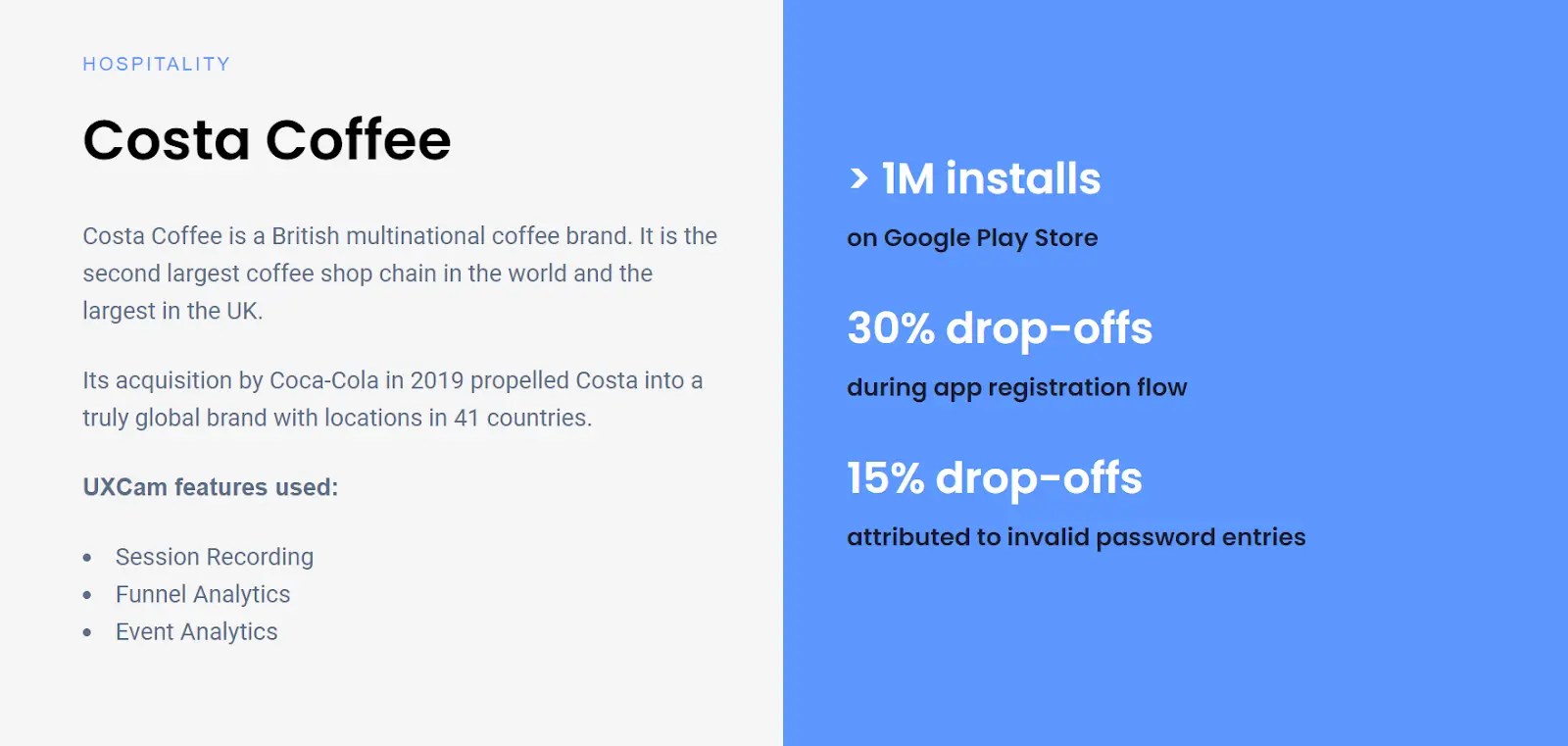
Costa Coffee faced a similar issue. They launched a loyalty program, but adoption rates were worryingly low. They used UXCam to investigate and found that their “invalid password” flow was frustrating users and driving them away for good.
Fixing this issue increased app registrations by 15%.
Conclusion
Boosting mobile app adoption is an important goal for any app developer or marketer. There are many strategies and best practices that can help achieve this goal. These include optimizing the app store page, creating a user-friendly onboarding process, offering incentives and rewards, engaging users with push notifications and in-app messages, and measuring and improving the app performance and user satisfaction.
UXCam is a powerful tool that allows you to record and analyze user sessions, identify usability issues, and optimize your app design and functionality. UXCam helps you understand how users interact with your app, what features they use or ignore, what problems they encounter, and what you can do to drive adoption.
Sign up for free and start using UXCam today.
You might also be interested in these;
Product adoption dashboard - How to track adoption metrics
Product adoption strategy - How to increase adoption rates
How To measure product adoption (metrics, formulas & tools)
AUTHOR

Tope Longe
Product Analytics Expert
Ardent technophile exploring the world of mobile app product management at UXCam.
What’s UXCam?
Related articles
Product best practices
App Onboarding Guide: Top 10 Onboarding Flow Examples 2026
Take a look at 10 examples of apps that get user onboarding flows right. Get inspired by proven app onboarding approaches and improve your...

Jonas Kurzweg
Product Analytics Expert
User Onboarding
7 SaaS Onboarding Best Practices to Boost Retention
Boost SaaS retention with 7 proven onboarding strategies. Learn how to personalize, streamline, and guide new users to value faster using real behavior...

Gianluca Ferruggia
Product best practices
How to Increase Mobile App Engagement (10 Key Strategies)
Discover the top strategies for increasing mobile app engagement and user retention. From push notifications to app gamification, our expert tips will help you boost...

Tope Longe
Product Analytics Expert
